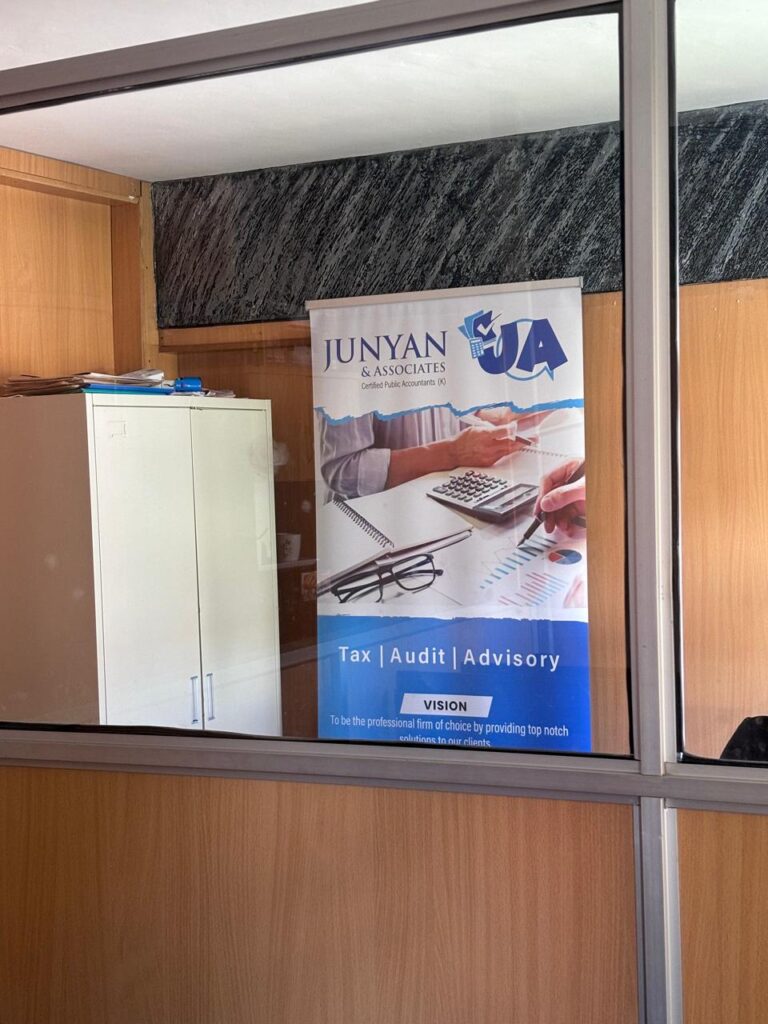Why Foreign Business Registration in Kenya Matters?
In today’s rapidly globalizing economy, Kenya has become one of Africa’s most attractive destinations for foreign investors. From tech startups to manufacturing giants, international businesses are increasingly seeking to establish a presence here. However, before starting operations, understanding foreign business registration in Kenya is essential for compliance, credibility, and long-term growth.
What Is Foreign Business Registration?
Foreign business registration is the formal process through which a company incorporated outside Kenya obtains legal authority to operate within the country. This process ensures that foreign entities adhere to Kenyan business laws, taxation rules, and regulatory frameworks — protecting both the investors and the local market.
In simple terms, it’s the first legal step that allows a foreign company to do business in Kenya, whether through a branch, subsidiary, or representative office.
Requirements for Foreign Business Registration in Kenya

The Companies Act, 2015 governs the registration of foreign companies. Key requirements include:
- Certified Copies of Incorporation Documents – Such as the Certificate of Incorporation and Memorandum & Articles of Association from the parent company’s home country.
- List of Directors and Shareholders – Including their nationality, occupation, and addresses.
- Local Representative – A Kenyan resident authorized to accept official notices on behalf of the foreign company.
- Registered Office in Kenya – The Company must have a local physical address for correspondence.
- Statement of Capital and Objectives – Outlining the business activities to be undertaken in Kenya.
- Filing Fees – Payable to the Registrar of Companies through the Ecitizen portal.
Once approved, the foreign company is issued a Certificate of Compliance, allowing it to legally conduct business in Kenya.
Step-by-Step Registration Process
- Name search and reservation. The first step involves searching and reserving a company name with the Registrar of Companies. This is done online through the e-Citizen portal and may be done simultaneously with the application for registration of the company.
- Preparation of documents. The key documents required include Particulars of the directors and shareholders; Memorandum of Association; the Notice of residential address of the directors; the Register of Beneficial Owners and a Statement of Nominal Capital. The subsidiary can incorporate the culture of the parent company by incorporating its articles of association and bylaws with necessary modification subject to compliance with the provisions of the Companies Act.
- Application for registration. To complete the process of application for registration, the duly executed forms are submitted to the Companies Registry via the e-Citizen platform and application fees paid for. If all the documents are in order, the company will be registered within approximately three to five days. Once registered, the company will be issued with a certificate of incorporation
- Tax registration. Once the foreign business registration is complete, the subsidiary must register as taxpayer and obtain a Personal Identification Number (PIN) from the Kenya Revenue Authority (KRA) for tax purposes. The directors of the company will be required to facilitate issuance of the company’s PIN; therefore, they must have their own PINs. Without the PIN, it practically impossible for the company to operate. A company’s PIN is required for example when opening of a bank account, conducting employment, conducting the day-to-day sales and generally doing business.
- Local compliance. The subsidiary shall need to comply with local laws such as acquiring necessary permits and licenses relevant to the intended line of business. This may involve liaising with the county government offices and other regulatory bodies.
- Post-Registration Compliance. Companies in Kenya must adhere to annual requirements such as filing annual returns and tax requirements. It is mandatory for public companies; and private companies with paid up capital of five million shillings or more to have company secretaries. While it is not mandatory for private companies with paid up capital of less than five million shillings to have company secretaries, we recommend that a foreign owned company appoint one to ensure access to the company’s Business Registration Services (BRS) portal to maintain the company and make requisite filings.
Why do a foreign business registration in kenya.

- Access to a Growing Market
Kenya serves as a commercial hub for East Africa, offering access to over 300 million consumers through regional trade blocs like the EAC and COMESA. - Legal Protection
Registration grants your business legal standing, protecting your intellectual property, contracts, and investments. - Improved Credibility and Trust
A registered foreign entity signals professionalism and transparency, helping you attract local clients, investors, and partners. - Ease of Banking and Taxation
Registered companies can open Kenyan bank accounts, sign contracts, and comply with tax obligations efficiently. - Eligibility for Government and Private Tenders
Many government projects and corporate clients require vendors to be registered locally.
Common Challenges in Foreign Business Registration
- Understanding Kenyan business laws and documentation requirements
- Delays in document authentication or notarization from the parent country
- Difficulties in identifying a suitable local representative or office
- Tax compliance complexities
That’s why partnering with a professional accounting and business advisory firm makes the process smooth and compliant.
How Junyan & Associates Can Help

At Junyan & Associates, we also help international businesses expand into Kenya. Our experts guide you through every step of the registration process — from document preparation and KRA PIN acquisition to tax registration and compliance setup.
Our services under foreign business registration include:
✅ Registration of foreign branches and subsidiaries
✅ Liaison with the Registrar of Companies and KRA
✅ Tax advisory and compliance support
✅ Payroll and accounting setup
✅ Business licensing and work permit facilitation
With our experience, you can focus on building your business while we handle the legal and financial groundwork.
Final Thoughts
Foreign business registration is not just a legal formality — it’s a gateway to opportunity. Whether you’re expanding your operations or exploring new markets, establishing your business correctly in Kenya ensures compliance, credibility, and growth. Registering a subsidiary in Kenya, while straightforward, does require adherence to a series of statutory procedures.
The effort in adhering to the foreign business registration process is often rewarded with the opportunity to operate within one of Africa’s most vibrant economies. At junyan and associates, we have a vibrant team of business consultants / accountants who can help you not only register the company but also assist in the setting up processes. This we do through the provision of registered office services, company secretarial services, business licensing services, tax advisory as well as employment and labor law advisory among other services. Additionally, our Immigration team will assist any foreign directors or employees procure the relevant permits or passes as the case may be.
If you would like to consult on this article or any other legal issue pertaining to registration of a subsidiary of a foreign business in Kenya, or any other matter,
You may contact the contributors on the emails below junyanandassociates@gmail.com. Do also visit our websitehttps://junyanandassociates.com/ for more information about us and our services.
Partner with Junyan & Associates today and make your entry into Kenya’s thriving economy seamless and successful.
FAQ on foreign business registration in Kenya.
1. Can a foreigner register a company in Kenya?
Yes, foreigners can fully own and register a company in Kenya without requiring a local partner. However, some business sectors (e.g., telecommunications, insurance, and banking) may have restrictions on foreign ownership under foreign business registration.
2. What is the best business structure for a foreigner starting a business in Kenya?
Foreign investors typically register as:
- Private Limited Company (Ltd) – Most common and flexible for foreign ownership.
- Foreign Branch Office – If you want to extend your existing company to Kenya.
- Limited Liability Partnership (LLP) – Suitable for professional service firms.
3. What is the minimum capital requirement for a foreign-owned company in Kenya?
- Most businesses have no specific minimum capital requirement.
- However, companies owned 100% by foreigners in certain sectors (e.g., trade businesses) must have a minimum capital of USD 100,000 (Ksh 15 million) to qualify for an investor work permit.
4. Do foreigners need a Kenyan partner to register a company?
No, foreigners do not need a local partner unless required by industry regulations (e.g., security services, telecommunication). A foreigner can own 100% of a private limited company.
5. Can a foreigner be a director of a Kenyan company?
Yes, a foreigner can be a director of a Kenyan company. However, at least one director must have a Kenyan Personal Identification Number (KRA PIN), which foreigners can obtain by registering with the Kenya Revenue Authority (KRA). Please note you need an Investment Permit to obtain the KRA PIN.
6. What are the tax obligations for a foreign-owned company in Kenya?
foreign business registration in Kenya must comply with:
- Corporate Income Tax (30% for resident companies, 37.5% for non-resident companies).
- Value Added Tax (VAT) (16% for businesses earning over Ksh 5 million annually).
- Pay As You Earn (PAYE) for employees.
7. What is the process for registering a company in Kenya as a foreigner?
- Reserve a company name (via eCitizen).
- Prepare registration documents (Memorandum & Articles of Association, Form CR1, CR2, CR8).
- Provide copies of passports, KRA PINs, and passport photos of directors and shareholders.
- Indicate a registered office address in Kenya.
- Submit application on eCitizen (processed within 5-10 working days).
- Receive Certificate of Incorporation.
- Register for tax (KRA PIN), NSSF, NHIF, and Business Permit.
8. Does a foreigner need a work permit to register and run a company in Kenya?
- No work permit is needed to own a company under the foreign business registration.
- A work permit (Class G Investor Permit) is required if a foreigner wants to work and manage the company in Kenya.
9. Can a foreigner open a business bank account in Kenya?
Yes, but the company must first be registered. The requirements include:
- Certificate of Incorporation
- KRA PIN for the company
- Board resolution to open a bank account
- Copies of directors’ passports and KRA PINs
- Proof of physical address
10. Can a foreign company register a branch in Kenya?
Yes, a foreign company can set up a branch office in Kenya. The parent company remains responsible for liabilities, and the branch must file annual returns.
11. How much does it cost to register a company in Kenya?
The government fee for foreign business registration is Ksh 10,650. Additional costs may include:
- Legal and foreign business registration service fees (if using an agent)
- Work permit application fees (if needed)
12. What are the ongoing compliance requirements for a registered company in Kenya?
Once foreign business registration is done, a company must:
- File annual returns with the Registrar of Companies.
- File tax returns with KRA.
- Renew business permits annually.


